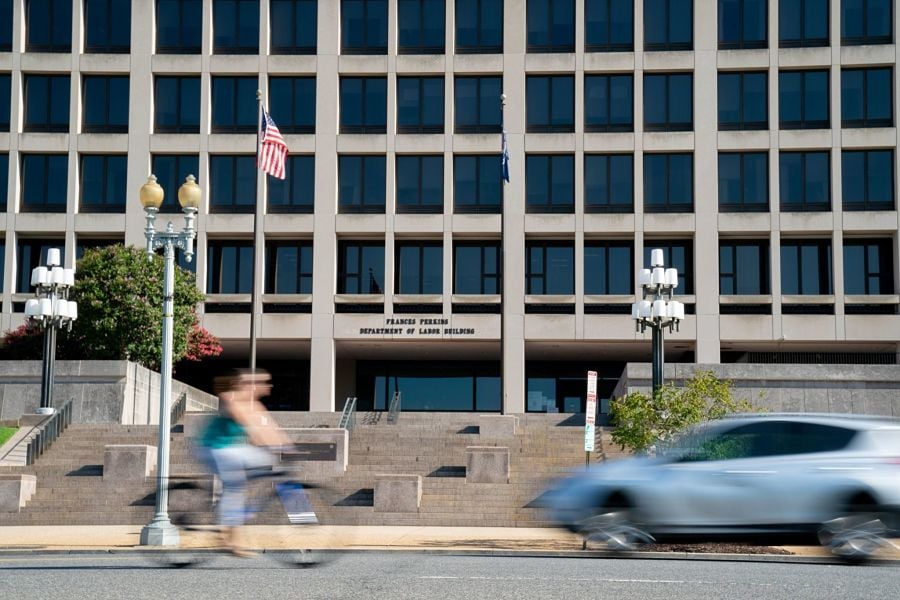

Delaying the implementation of a Department of Labor investment advice rule would likely benefit small advisory firms grappling with the regulation, a former DOL official said.
Ten financial trade associations wrote to the DOL Wednesday requesting more time to prepare for the agency’s fiduciary rule for retirement accounts, which was approved late in the Trump administration and allowed to take effect by the Biden administration in February. The rule is scheduled to go into force on Dec. 20.
The measure would strengthen requirements for rollovers from 401(k) plans to individual retirement accounts, subjecting most of those decisions to a fiduciary standard, according to guidance from the Biden DOL.
The rule provides a prohibited transaction exemption under the Employee Retirement Income Security Act for fiduciaries to receive third-party compensation — such as commissions or revenue-sharing — that would otherwise be banned as long as they met certain requirements, such as disclosing and mitigating conflicts of interest.
The financial industry lobbyists asserted that the industry hasn’t had enough time to comply with the rule. In their letter to Ali S. Khawar, acting assistant DOL secretary for the Employee Benefits Security Administration, they asked DOL to extend for six months to a year a temporary enforcement policy that allows advisers to receive prohibited compensation if they follow impartial conduct standards.
The extra breathing room is important for small investment advisory firms, said Brad Campbell, a partner at Faegre Drinker Biddle & Reath. They need more time to adjust their policies and procedures and train staff for the fiduciary rule.
“A lot of smaller RIAs don’t understand the magnitude of the work necessary to comply by December,” said Campbell, who headed EBSA during the George W. Bush administration. “It’s entirely possible a lot of RIAs won’t be in full compliance by December despite their best efforts.”
The other challenge facing RIAs is that they assume they’re in the clear on a fiduciary rule because they charge flat fees for advice rather than receiving variable compensation from third parties, Campbell said. But they will need to rely on the DOL rule’s exemption because recommending a rollover will create a new revenue stream for them.
“A lot of RIAs think of themselves as the fiduciary good guys,” Campbell said. But everyone can be a bad guy under the DOL rule.
“Whether your compensation is a flat fee or a commission, it’s still going to be a prohibited transaction for rollover recommendations,” Campbell said.
The Trump-era rule, which replaced an Obama administration regulation vacated by a federal court, was meant to complement the Securities and Exchange Commission's Regulation Best Interest, the broker conduct standard.
Around the same time the rule goes into force late this year, the DOL intends to propose another rule that would define who is a fiduciary to retirement savers and address potential compensation conflicts.
The financial industry groups urged the DOL to hold off on the new rulemaking. If the agency proceeds, some firms might be hesitant to adopt the Trump-era rule because of uncertainty about what’s coming next.
“This creates a situation where small firms are not embracing use of the PTE because of a lack of resources to comply by December 20 and other firms are not embracing use because of uncertainty around future rulemaking that creates a moving target for compliance,” the organizations wrote.
The letter was signed by the American Securities Association, Davis & Harman, the Federation of Americans for Consumer Choice, Finseca, the Institute for Portfolio Alternatives, the Insured Retirement Institute, the Investment Company Institute, the National Association of Independent Life Brokerage Agencies, the National Association of Insurance and Financial Advisors, the Securities Industry and Financial Markets Association, and the U.S. Chamber of Commerce.

"This shouldn’t be hard to ban, but neither party will do it. So offensive to the people they serve," RIA titan Peter Mallouk said in a post that referenced Nancy Pelosi's reported stock gains.

Elsewhere, Sanctuary Wealth recently attracted a $225 million team from Edward Jones in Colorado.

The giant hybrid RIA is elevating its appeal to advisors with a curated suite of alternative investment models, offering exposure to private equity, private credit, and real estate.

The $40 billion RIA firm's latest West Coast deal brings a veteran with over 25 years of experience to its legacy division for succession-focused advisors.

Invictus fund managers allegedly kept $10 million in plan assets after removal, setting off a legal fight that raises red flags for wealth firms.
Orion's Tom Wilson on delivering coordinated, high-touch service in a world where returns alone no longer set you apart.
Barely a decade old, registered index-linked annuities have quickly surged in popularity, thanks to their unique blend of protection and growth potential—an appealing option for investors looking to chart a steadier course through today's choppy market waters, says Myles Lambert, Brighthouse Financial.
